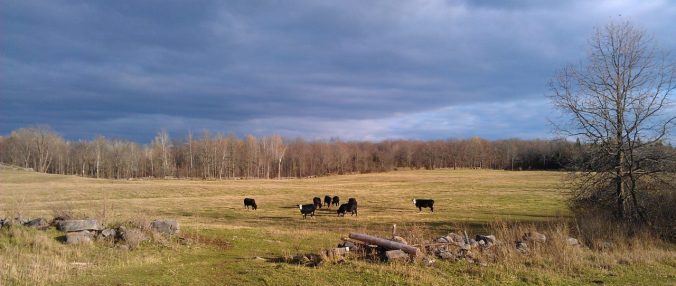
There is an automatic association most people have with rural living, which is we are all farmers.
Well, that just isn’t the case. The truth is most rural residents are not farmers, but they do live in the vicinity of one.
Family farms used to be a staple of rural living fifty years ago, but due to technological advances in the agricultural industry and the decline of younger family members taking over the family business, family farms have gone to the wayside. Many farmers are forced to sell their farms in order to retire, or invest in new technology to keep the farm productive. It has become known in the ag world as “Go big or go home”.
With the influx of new comers to the back roads, many have the notion that when they move to the country, they will live off the land and provide for themselves. This is a great idea, but putting it into practice is much more complex and laborious.
Now that said, if you are considering starting a farm, please note there are many risks, variables and variations of farming, and it takes meticulous planning and organisation in order to be successful. Even when you think you have covered all your bases, unexpected situations can arise which can compromise all the hard work you have put into it.
Now this is not to turn you off of farming; its just the facts of farming. All that risk is not without great reward. For when you are successful, the sense of pride justifies all of the hard work involved.
My best advice to someone considering any type of farming, is to make a plan and do some research.
Talk to local farmers, or people who are doing what you would like to be doing. The internet has made the world of agriculture so connected and many farms have social media pages to connect the customer to the farm. Ask lots of questions, and make notes.
Be realistic, and honest in the amount of work you are willing to put in. Especially with livestock, you have to be there every day. If you can’t make that commitment, then consider something else.
Make sure your plan is thorough, and ensure you have a Plan B, if things do not work the way you planned. Have someone who has experience in agriculture look over your plan and ask for advice. The best farmer is an informed farmer.
Keep your goals and expectations realistic, and get ready to do some work. Farming is a rewarding business, but like any business, you must be prepared, mentally, physically, and financially.
Happy Farming and best of luck for a prosperous year ahead!
My wife gave an amused smile 20 years ago when I suggested that we break some ground at our West Virginia cabin. We ended up calling that initial task the “cemetery garden” as that is what my mounds of dirt looked like I was digging up. Gradually we have developed garden areas, learned how to breed milk goats, raise ducks for meat, and process all the vegetables for year-round food. Today, with the winter cold breaking here for a couple of days, we cleaned out the goat barn, put down new bedding, and smiled as we looked over the garden bed covered with rotting hay and manure… Next year’s vegetables await us in the winter seed catalogues. -Oscar
LikeLiked by 1 person
At this point in the year, all we can do is plan. I love when the seed catalogues come in this time of year and give a much needed boost of inspiration. thanks for the comment! 🙂
LikeLike
I agree with your planning suggestions if your intention is to make the farm your business and perhaps eventually your only source of income. However, if people are wanting a lifestyle that is much more connected to nature, provides the satisfaction and fulfillment that farming can offer and the healthier lifestyle it promotes, that’s a little easier to wing and learn as you go. If you wait for everything to fall into place you might never get started.
Of course, it also really depends on how you define farming! And the beauty of that one is that it can look like you want it to look!
I’m constantly feeling humbled and incredibly blessed that I’ve got the opportunity to live this rural lifestyle.
LikeLiked by 1 person
Thanks for the comment and feedback! We love rural living and all that comes with it 🙂 all the best!
LikeLike